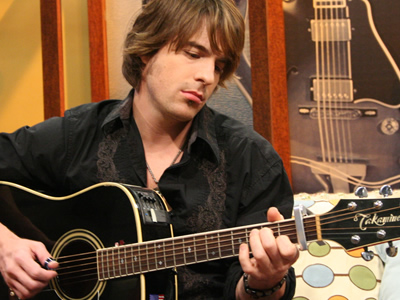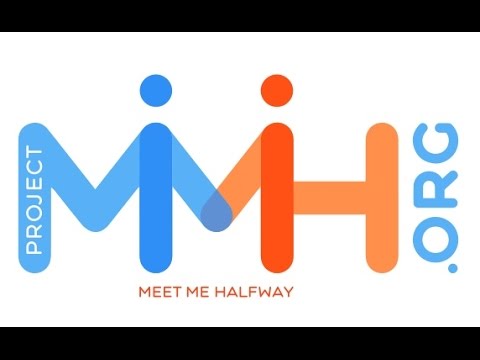(Written by Jimmy Wayne)
We are proud to partner with Wellspring Living and The Make It Zero campaign in the fight against child-sex trafficking. We would also like to thank MELT for spearheading this effort. From Atlanta to Africa, poverty is a reality for too many people. We would also like to thank Jimmy Wayne for his heartfelt story on how he used his gift to overcome homelessness. Please support his organization Project Meet Me Halfway, a great cause that helps to build homes for at-risk children.
In 1989, the Berlin wall fell; my wall, however was still up and wasn’t about to come down—or so I thought!
I was 16 years old and homeless, living on the streets in North Carolina. I was riding a bicycle that I had borrowed (I was going to return it although I didn’t know when) scouring the neighborhood looking for odd jobs. I needed money to buy food.
I noticed a garage bay door opened on a wood shop that was once a fueling station back in the 40s. An elderly man was standing at a band-saw cutting a dasher that goes inside of a butter-churn. Something told me to go up and ask that man if he had any work I could do. I did.
“Ask the boss,” he said, nodding his head toward a white-haired lady in the back of the wood shop man-handling a radial-arm saw.
She flipped the “off” switch, pushed her goggles back on top of her white hair, wiped the saw dust off her arms, and walked toward me.
“Do you cut grass?” the elderly woman asked. “Yes, Ma’am!” I replied.
“Well, good. Come back this afternoon at 5 p.m. and cut our grass,” she said.
I arrived on time and began cutting the elderly woman’s grass. Halfway through the job, I noticed the white-haired lady had walked out the front door of her home carrying a Coca-Cola. She motioned for me to come over to the fence where she handed me the Coca-Cola and a doughnut.
We talked . . . well, she talked and I just listened. She talked about the weather and complimented the job I was doing. She then asked me to come back the following week and cut her grass again. I became her lawn boy for the remainder of that summer and each time I cut her grass, she b rought me a Coca-Cola and a doughnut out to the fence under the apple tree.
rought me a Coca-Cola and a doughnut out to the fence under the apple tree.
Toward the end of the summer, I started getting nervous, wondering how I was going to earn money and where I was going to live. I showed up at the elderly woman’s home and just as always, she brought a Coca-Cola and doughnut out to the fence, but this time she did not compliment the job I was doing and or talk about the weather. She simply asked, “Jimmy, where do you live?”
Without giving away too much information, because I did not want this 75-year-old woman to know anything about me, I responded, “Ahh, up the road.”
The elderly woman, whose name was Beatrice Costner, but preferred that I call her Bea, was very wise.
She smiled and said, “Well, my husband and I have been talking and want to know if you would be interested in moving into our home?”
I knew it wasn’t going to last; it never lasted. I’d been allowed to stay with a few kind folks before, and always had to leave. But at least it would be a few days that I would not have to sleep outside, I could wash my clothes, eat, and take a shower. So I showed up at her home that evening, carrying a plastic bag filled with my clothes and other items such as poems, letters and drawings.
I rang her doorbell and Bea walked up to the glass storm door, opened it, and told me to come on in. I stepped into her home; it smelled amazing like pie. I walked across the living room, down to the spare bedroom, and put my bag down. I did not unpack.
I waited the next four days for her husband, Russell, who was also a World War II veteran, to make me leave. He hadn’t said a word to me the entire time I was there and I knew it was only a matter of time before the 79-year-old man was going to send me away.
Sure enough, Russell stopped me in the hallway and told me he needed to talk to me about something.
I knew what he was going to say. Nevertheless, I sat down in his chair and he sat across the living room in a small chair beside the front door. The sun was shining through the window behind him, creating a silhouette of Russell.
He held up three fingers and said, “Jimmy, if you’re going to stay in my home, there’s two things you’ve got to do.”
I wanted to correct him, but that voice I’d heard many times before said to me that I needed to keep my mouth closed and not say a word. I listened as Russell explained, “The first thing you got to do is cut off all your hair just like mine.” He lowered the first finger. “We want you to go to church.” He then lowered the second finger. “And if you don’t do those two things, you’ve got to leave now.” He emphasized the last statement by lowering the third finger.
I couldn’t believe my ears. They were going to let me stay!
For some foolish reason, I thought Russell would let the haircut slide.
He didn’t.
As soon as I said, “Okay,” he said, “Then get in my truck.” We headed to the Dixie Village barbershop.
When we walked in, the barber said, “Hello, Mr. Costner. What can I do for you?” It was very obvious that Mr. Costner did not need a haircut.
Mr. Costner said, “This boy needs a haircut.”
The barber looked at me and grabbed his clippers as if he couldn’t wait to plunge them into my long hair. The barber said, “Get up here, boy.” He wrapped a cape around my neck and the next sound I heard was the buzzing of clippers zipping around my head. Twenty seconds later I was nearly bald.
After the haircut, Mr. Costner took me next-door and purchased some school clothes for me.
When we returned to their home, I dug through my plastic bag and found a phone number that belonged to my seventh grade guidance counselor, Ms. Cindy Ballard. I told her that I had found a home. Ms. Ballard said, “We need to get you back in school.”
With her help and so many other wonderful people’s help, I enrolled in high-school and from that day forward, I never missed one single day of high-school. I was even there on senior skip day!

This family single-handedly changed every cell in my body.
They gave me an opportunity to go to high-school, attend a community college, and pursue my dream of writing and performing music. After having some success in the music business, I decided to use my experience growing up in the foster care system in conjunction with my success and raise awareness for the 30,000 foster children who age out of foster care every year in America. Most of these young people become homeless, imprisoned, pregnant, or dead.
On January 1, 2010 I began walking from Nashville Tennessee to Phoenix Arizona, simulating being homeless. I called the campaign Project Meet Me Halfway. Although I predicted it would take me only three months to walk the 1700 miles, it took me seven months.
It was approximately 9° the day I left Nashville and 117° the day I arrived in Phoenix on August 1, 2010. As a result of the walk, California, Tennessee, and North Carolina extended foster care to age 21.
My goal is to get every state in America to extend foster care to at least age 21. Each state will save money by extending foster care.
But most importantly they will save a child’s life.
You can help me help these vulnerable and valuable children by getting involved in Project Meet Me Halfway. Log onto projectMMH.org and share this information with your friends. Thank you all for taking time to read this blog. If you would like to discover the entire story, please pick up a copy of my “New York Times” bestseller, Walk To Beautiful.

 rought me a Coca-Cola and a doughnut out to the fence under the apple tree.
rought me a Coca-Cola and a doughnut out to the fence under the apple tree.
